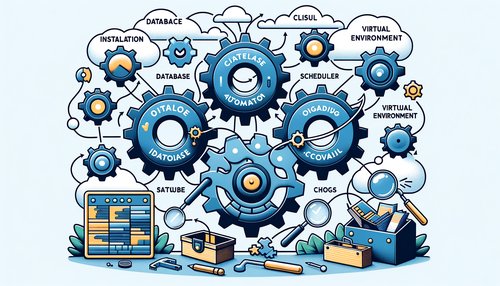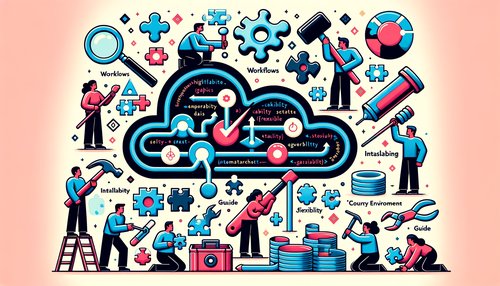Learn the Top 10 Best Practices for Developing with Python Django
Python Django is an open-source web framework written in Python. It is used to create high-end web applications with great performance and scalability. It is a powerful framework that is used by many developers and organizations.
In this blog post, we will discuss the top 10 best practices for developing with Python Django. Following these best practices will help you create high-quality applications that are efficient and easy to maintain.
1. Use Virtual Environment
Virtual environment is a great tool for managing your Python environment. It allows you to create multiple isolated environments for different projects and applications. This helps you avoid conflicts between different versions of Python packages. To use virtual environment, you can use the following command:
python -m venv my_venv
2. Use the Latest Version of Python
It is important to use the latest version of Python for developing with Python Django. This ensures that you have access to the latest features and bug fixes. To check which version of Python is installed on your system, you can use the following command:
python --version
3. Use a Version Control System
Using a version control system such as git is essential for any software project. It allows you to track changes to your code and helps you manage your project effectively.
4. Use Python Packages
Python packages are a great way to reuse code and reduce development time. There are many popular packages available for Python Django such as Django REST framework, Django-Crispy-Forms, and Django-Debug-Toolbar.
5. Use the Django Admin Site
The Django Admin Site is a powerful tool for managing your application. It allows you to create, edit, and delete data in your database. It is a great way to quickly and easily manage your application.
6. Use PEP 8
PEP 8 is the official Python style guide. It provides guidelines for writing code that is easy to read and maintain. Following these guidelines will help you write better code and reduce errors.
7. Use Logging
Logging is an important part of any application. It allows you to track errors and other important events in your application. Using logging will help you diagnose and fix problems quickly.
8. Use Secure Coding Practices
It is important to use secure coding practices when developing with Python Django. This includes using secure passwords, avoiding SQL Injection attacks, and using secure authentication methods.
9. Use Unit Tests
Unit tests are an important part of any software project. They allow you to test individual components of your application and ensure that they are working correctly.
10. Use Automated Deployment
Automated deployment is a great way to quickly and easily deploy your application to a server. It allows you to deploy your application with minimal effort and ensures that your application is up-to-date.
By following these best practices, you will be able to develop high-quality applications with Python Django quickly and easily.
Recent Posts

Unlocking the Power of Terraform: Mastering Conditional Expressions for Smarter Infrastructure Automation

Unveiling the Future: Navigating the Public Interface of Apache Airflow for Streamlined Workflow Management
Apache Airflow
Mastering Workflow Automation: Unconventional Apache Airflow How-To Guides for the Modern Data Enthusiast
Apache Airflow
Mastering the Cloud: Unveiling AWS CloudFormation Best Practices for Seamless Infrastructure Management



